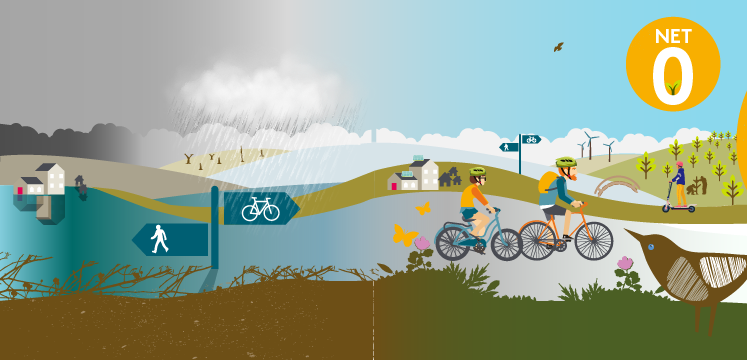
In 2018 our State of the Park report identified a number of questions where there was an urgent need for more knowledge and information, if we were to ensure the Special Qualities and attributes of Outstanding Universal Value are protected and enhanced for future generations.
Our research framework represents an attempt to set out and explore those questions in detail as a precursor to further research and investigation. The aim of this research framework is to provide a structure for us to investigate what we need to know, what we don’t know and how we can go about prioritising these to allow us to better deliver our strategic aims and ambitions. It also provides a mechanism to help us to understand how the Special Qualities will be affected by future changes in society and the natural environment, such as climate change, and our role in maintaining socially vibrant, economically thriving communities. It has been prepared by drawing on our collective knowledge and expertise to understand and prioritise the issues and challenges that affect the management of the Lake District.
The research framework is designed specifically to:
We have used a consensus approach to work out the research we would like to conduct. Whilst there are many areas of interest, the process we have used has focused on what we believe to be the most critical priorities for managing the Lake District. We achieved this through a number of rounds of negotiated prioritisation.
Conducting research to solve challenges in the Lake District is an ongoing process and not new. Whilst this research framework is a new tool to help with this, there are a number of projects currently underway.
The value of the research framework is therefore to help the ongoing work bring greater focus to the needs of the National Park and World Heritage site as well as develop new areas to explore. Furthermore, because funding is always an issue, making sure we do not replicate work that has already been undertaken, is essential.
In line with the structure of the Plan we will be investigating the five key challenges with a number of priority projects. The following research topics have been refined following the Partnership’s Action Review in Spring 2024:
Climate Action
RP1: Production of a sensitivity/resilience map to climate change across the Lake District.
RP2: Exploring the role of the Partnership in communities achieving net zero.
Farming, Forestry, Nature Recovery & Climate Change
RP3: Explore how Lake District farm system operations can deliver adaptations and mitigations to address climate change, and become more resilient themselves.
RP4: How can Lakeland farming systems deliver nature recovery in a cultural landscape, and be financially viable? Identifying options and best practice.
Sustainable Travel & Transport
RP5: What makes a holistically sustainable rural community (including research covering housing, employment, services and transport)?
Vibrant Communities and a Prosperous Economy
RP6: How do we attract and retain young adults to live in the Lake District National Park?
This list is by no means exhaustive we have many other ideas and projects we would like to pursue but we feel these above, at the current time, are the ones on which we need focus our minds. We are also very aware that many of the projects above are inter-dependent; what we learn from one will give us better understanding for another and help us create better solutions to the challenges faced.
Whilst we have every intention to move forward with our research agenda there are a number of challenges, of which we need to be aware that could slow our desired pace. The key ones we need to consider are:
Research also brings with it a range of opportunities, which include:
As noted above, funding is the most limiting factor for the completion of research. This is one of the reasons we have spent so much time prioritising which work needs to be conducted first. Recent global events have also led to many formal research funds diverted away from their original purpose and thus we have to acknowledge that pots may be smaller than in the past for the work we wish to complete. Many funds also have strict criteria in terms of who can apply and what money will be provided for, so in some instances we may not be able to find the funds for the foreseeable future, but there are other ways to address this situation.
As well as the typical funding streams such as National Research Councils, philanthropic charities and Government departments we propose to approach a range of northern universities who have undergraduate and post- graduate taught (ie MScs, MAs) and post-graduate by research (ie. MPhil and PhD) programmes. We are aware that academic staff are constantly looking for a range of types of research project, which provide collaborative value and real-world application for students as part of their research training.
Finally, we would like to consider using citizen science to explore some of our needs in terms of baseline mapping and monitoring across the Lake District. We are particularly interested in the status of field boundaries and the occurrence of different types of biodiversity. In this respect, we welcome approaches from species-interest or social community groups covering all families of plants and animals who would like to become involved in monitoring across a range of kilometre squares of our area.
The knowledge we gain from the research we commission and undertake will be available to everyone unless commercially sensitive. We are exploring whether a portal can be hosted by our local University, the University Cumbria for this purpose.
If you have access to additional work that helps us better understand the challenges facing the Lake District we would be pleased to hear from you by contacting us: LDNPP@lakedistrict.gov.uk